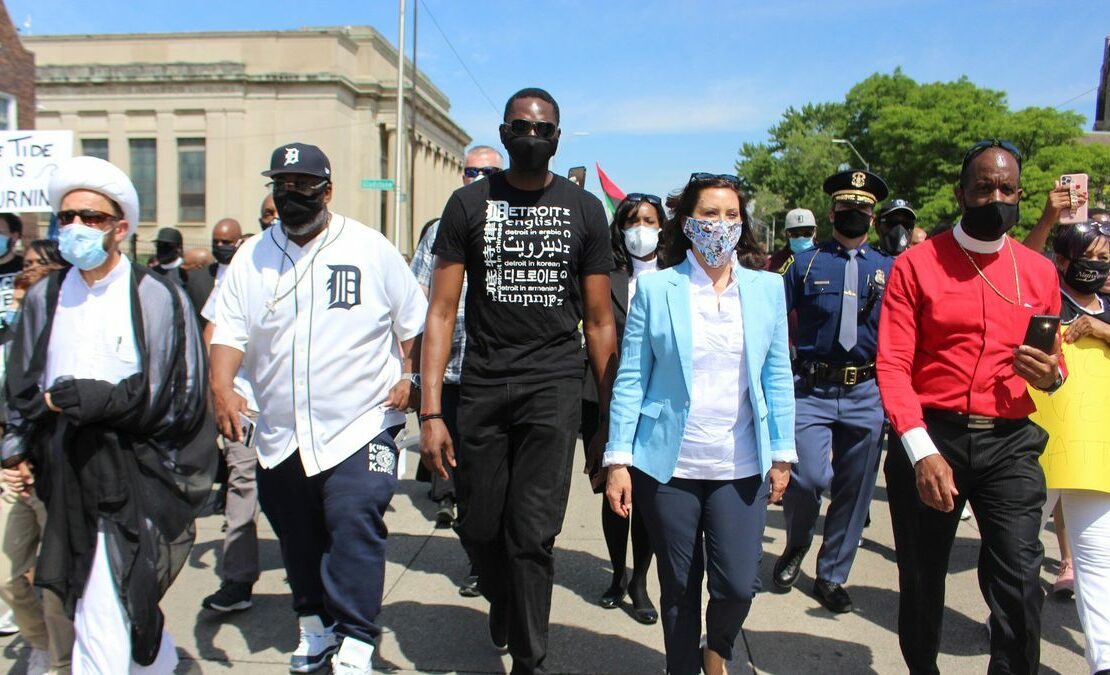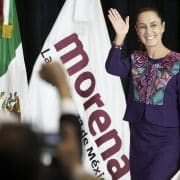Creadores de contenido en Interesante
In 2019, Gretchen Whitmer won the election for Governor of Michigan by only 3.3 percentage points. In that same election, she carried Wayne County, a county that is 39% Black (the highest percentage in the state), by a whopping 44 percentage points.
As the first Democratic governor of the state since 2010 and a candidate who was voted in by many Black voters, Governor Whitmer has a special obligation to this community. In the current moment of a global pandemic and a social uprising, it’s important to examine how Governor Whitmer is living up to her responsibilities.
How Governor Whitmer is Handling COVID–19
Early on in the pandemic, Governor Whitmer and the state of Michigan gained national notoriety for having a high number of cases and a strict gubernatorial reaction. During the early months of the pandemic (March and April), Michigan ranked in the top ten nationwide for the highest number of cases and deaths.
At the same time, Michigan was one of the first 15 states to implement an official stay-at-home order (doing so on March 24th), and even before that Whitmer had begun quickly imposing executive orders to promote people staying home and to provide people with aid. Her strict policies in response to the severity of the pandemic’s effect on Michigan has earned Whitmer infamy in many circles, including with Donald Trump and armed protestors.
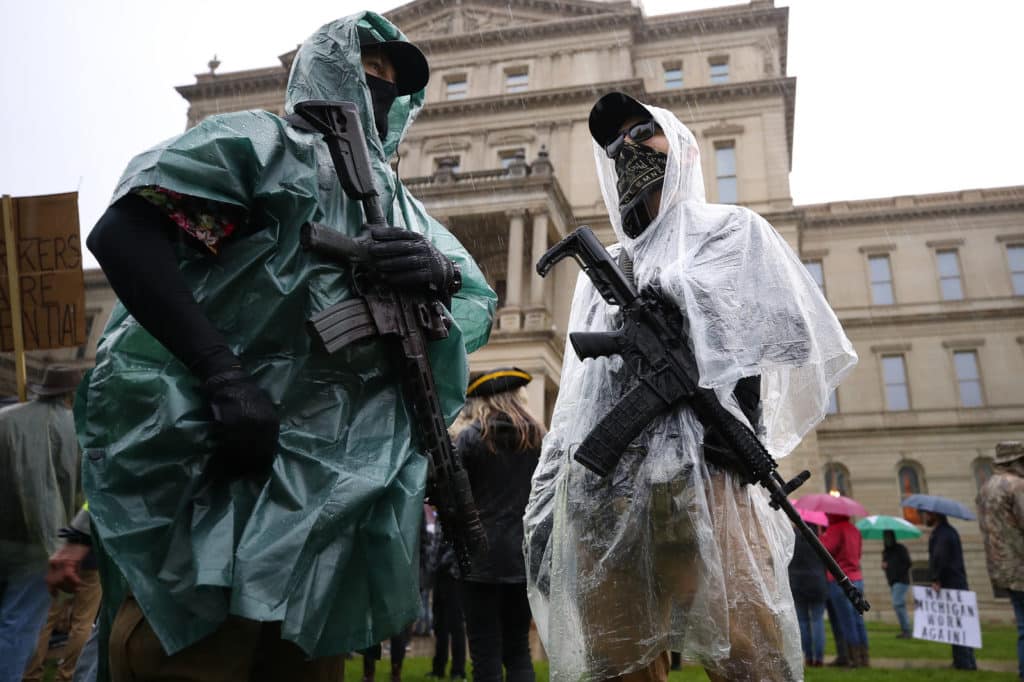
Protesters carrying weapons gather at the Michigan Capitol in Lansing. Protesters are demonstrating against Democratic Gov. Gretchen Whitmer for the coronavirus stay-at-home order in effect through May 28.
COVID-19’s Effect on the Black Community
Since the first confirmed cases of COVID-19 in Michigan on March 10th, the racial disparities in the healthcare system have become apparent. Currently, Black people account for 28% of the cases and 40% of the deaths, despite only comprising 14% of the state’s population. Wayne County (the county with the largest Black population) at one point had 47% of the cases in the state, despite housing only 17% of the state population. Perhaps most notably though, Detroit, the Blackest city in the state and one of the Blackest in the country, at one point had the highest number of Covid-19 deaths second only to New York State.
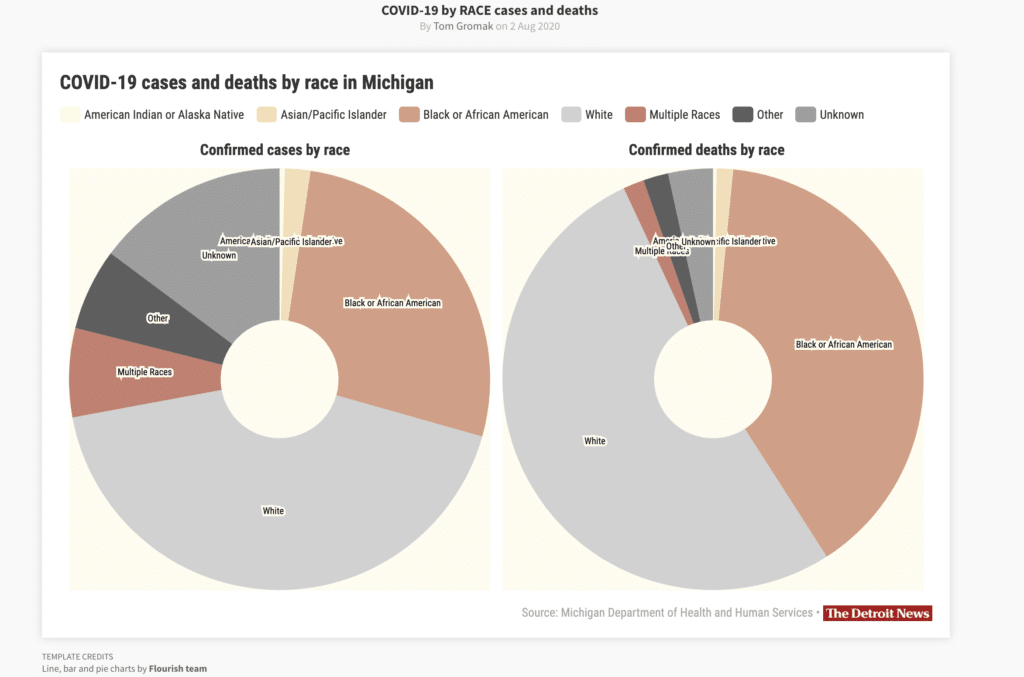
Black people have been hit hardest by COVID-19 in Michigan, and this is not a fact that Governor Whitmer has avoided. In an opinion piece written for The New York Times on June 2nd, Whitmer wrote that “the story of COVID––19 is a story about the historical legacy of racism in our country.” and further asserted that the commitment to ending the racial divide in the US must be made equal to the commitment to finding a vaccine.
Governor Whitmer’s claim to be committed to examining the role of race in the pandemic is one that she has materially backed up in several ways. Michigan was one of the first states to report Covid-19 mortality rates by race at the instruction of Governor Whitmer, and not long after she established the Michigan Coronavirus Task Force on Racial Disparities to investigate and diminish the factors that make Covid-19 so deadly for the Black community.
Along with a demonstrated commitment to at the very least acknowledging racial disparity, the Black community’s concern surrounding COVID-19 has also worked in Governor Whitmer’s favor.
In a May poll released by the Detroit Regional Chamber of Commerce, 60% of Black voters supported waiting for a vaccine before reopening the Michigan economy. 58% of Black voters also reported feeling unsafe to return to work (compared to 28% of white voters), and far more Black voters were reluctant to return to public spaces like grocery stores and doctors’ offices, as compared to their white counterparts.
Detroit Chamber of Commerce
Considering the concern in the Black community about the risk of COVID-19, Governor Whitmer has managed to drum up support in this community because her strict policies align with the community’s fears. Some in the state feel that Governor Whitmer’s reaction to the pandemic has been harsh and disproportionate. Still, for a marginalized community already dealing with many struggles, it could be a saving grace.
Whitmer And The Fight for Racial Justice
Since the murder of George Floyd on May 25th, a social and racial uprising has been taking place nationwide. In Michigan, things have proved to be no different as images of both peaceful, and impassioned demonstrations have spread across the internet. Last month, Governor Whitmer marched and kneeled alongside demonstrators during a civil rights march through Detroit and Highland Park. During this demonstration, Governor Whitmer encouraged participants to stay engaged in the fight “to move forward” and to use elections as a way to shift power.
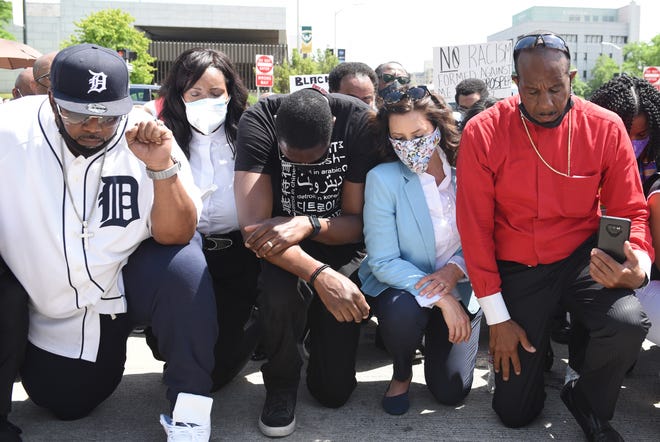
In addition to weeks of demonstrations and protests, Governor Whitmer has also been fielding various questions about policing, especially as it pertains to communities of color in Michigan. In a June 9th interview, Governor Whitmer expressed support for the “spirit” of calls to defund police, stating that she felt budgets should be focused on things like education, health care, and transportation. She and her press secretary later clarified the statement, asserting that Governor Whitmer does not believe the police should be defunded, but rather believes in focusing on “greater investment in people communities.” While the backtracking of the statement in some ways feels more political than sincerely clarifying, Governor Whitmer’s suggested commitment to investing more resources into Black communities is still a valuable and necessary one.
Governor Whitmer has also talked about being open to taking away certain protections that allow police officers to remain unaccountable for their often harmful behavior. Namely, Whitmer has expressed being open to the idea of ending qualified immunity (the policy of police officers not being held personally liable for anything that happens in the line of duty, including death), as well as unsealing police records. While reforms such as these are not the same as calls for defunding or abolitionist movements, they could still act as important first steps in forcing police to be publicly responsible for their actions, making it easier for the people to hold officers accountable for all wrongdoing.
In talking about the death of George Floyd and COVID-19, Gretchen Whitmer stated last month that “both reveal an infection we have yet to overcome.” The unnamed infection she speaks about is antiBlackness and white supremacy–issues that plague all of the US and that are particularly pertinent to many of the people Whitmer governs.
As the leader of a state where the most populated city by a long shot is almost 80% Black, Governor Whitmer has a major responsibility to address the questions, comments, and concerns of the Black community. Rather than shying away from this responsibility, it seems that Governor Whitmer has taken on the task directly. During the various national crises of the several months, Governor Whitmer has made several verbal and actualized commitments to the Black community that could ultimately paint her as a political figure on the side of the people.
What's Your Reaction?
Creadores de contenido en Interesante
